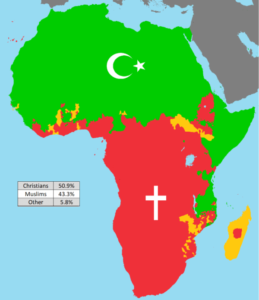SOME MEDICAL CONSIDERATIONS IN FASTING
Fasting is a wonderful spiritual exercise with great rewards, both spiritually and physically. It involves all of our spirit, the soul and the body; and in this study, we want to look at some physical issues which may come up during a fasting period.
What do we do if we fall ill during a fast?
We must do we normally will do – pray first and then seek medical intervention. Beloved, we remain spirit beings but we still live in a physical body even when we undertake a spiritual exercise like fasting. Do not delay and allow the devil to destroy the fasting period totally by causing the illness to become protracted. Take prompt action to check-mate that!
Medications
There are very few medications which can be taken on an empty stomach, notably Amoxicillin and Ampicillin; but most drugs will harm the stomach if taken without food. That means that if you are placed on medications, you need to ask your Doctor if they can be taken on an empty stomach and stop the fast, (but not the prayers!) if you he says No. You can then resume the fast when you have completed your regime of medications which will usually last for less than a week.
If you are on long-term medications, for instance, for hypertension or diabetes, you may have to simply switch the time you take your medications to after you break your fast. Of course, this is for those drugs which you take only once a day. If it is a drug you have to take twice or three times a day, please discuss with your doctor if you can take it and still fast.
A diabetic should really not fast for longer than 12noon before breaking the fast and then take the anti-diabetic medication if it is a once a day tablet. And you must watch out for signs of low blood sugar (called Hypoglycaemia) – hunger, weakness, trembling, sweating – and take sugar immediately and break the fast. Remember that low blood sugar is more dangerous than high blood sugar in that the brain will shut down within minutes and coma will result if the blood sugar gets too low.
If you are on Insulin injections, fasting is an absolute NO!-NO! because you must supply the body with the glucose made from your meals; for this is what the Insulin will act upon and distribute to the appropriate organs for their energy use. You must not risk a hypoglycaemic crisis which will surely occur if the Insulin mops up all the glucose from the blood and starves the brain of energy, resulting in a life-threatning coma.
If you are on a course of injections for any ailment, you may wait until you finish with that before continuing with the fast. The beauty of it all is that God sees our hearts and sees our limitations and will still honour our fervent prayers even if we cannot add fasting to them. And if it is a corporate fast, the fast of the others will bridge the gap for those who cannot fast.
What of those who are pregnant? I believe they can fast but only till 10am or 12 noon max, but they must drink water all along. The baby of a fasting Mum will not suffer because he is a holy parasite who will freely take whatsoever he needs from the host’s body; but the mother will become weak indeed if she takes a full fast till 6pm. The point has already been made that so long as we continue praying, God sees our hearts and will accept our sacrificial worship which is what fasting really is.
Breaking the fast
Someone once said “Fasting does not kill, it is breaking the fast wrongly that kills!” How true! The body usually has enough stores of energy in the form of glucagon and fat to use up during a fasting period, so it will be difficult to actually starve and hurt the body if enough care is taken. However, for those who are called to stretch-fasts of three, seven, twenty-one or forty days, extra care must be taken during the fast and in breaking the fast.
If you are undertaking a stretch fast for more than three days, you may need to slow down your physical activities so as not to lose water from the body too fast – lost from breathing and sweating. Fluid loss will make you to become dehydrated and weak and may interfere with the actual purpose of the fast which is to pray and seek God’s Face. This is why it is recommended that long stretch fasts be undertaken at retreat centers such as Prayer-Mountains.
To break a regular daily fast –
It is recommended that you take some water first, to refresh the body and to dilute the acid that must have accumulated in your empty stomach. Then take your meal, preferably with vegetables, more water and afterwards take some fruits to help with the opening of the bowels as well as providing a balanced diet. Then finish off with a glass of milk or a milky cocoa drink, avoiding tea or coffee unless it is decaffeinated so that the caffeine will not put your nerves on edge and give you palpitations as well.
Please, do not take citrus fruits first when breaking your fast because they are acidic and will only add to the accumulated acid in the stomach and cause abdominal discomfort. Also, it is better to avoid taking too much pepper during a fast for the same reason. Do not eat too much food at once, binging because of the fast! This will cause the shrunken stomach to expand suddenly and cause discomfort. Take time to rest afterwards because the body is weak and needs to concentrate on digesting the food.
A fasting period is a good time for the over-weight to shed some weight! All you need to do is to
- eat the same amount of food you will normally eat if you were not fasting
- reduce the amount of oil used for cooking
- do not eat more than one meal if you are breaking at 6pm. If you break at 2pm, you can take a small, low calorie meal at 7pm
Breaking a Stretch-fast –
This needs more care because the body is weaker, the stomach is shrunken more and more acid has accumulated in the digestive tract.
- First, drink WARM water in sips for about five minutes. Do not drink cold water because it will crack the dry lining of your throat and cause much pain when swallowing for many days.
- Drink a large mug of plain milk or a milky cocoa drink or some low-roughage cereal like cornmeal or custard, with added sugar and milk.
- Wait for some 30 minutes for the soft diet to coat the inside of the shrunken stomach and stretch the tight walls a little; and for the digestive system to wake up before eating a normal meal, avoiding pepper and harsh vegetables – that is, vegetables which cannot be boiled soft. Stick to spinach, carrots and so on. Vegetables need to be part of the meal so as to avoid constipation.
- Eat only half of what you would normally eat if you were not fasting and wait for the stomach to cope with that for about an hour or two before eating the rest. You may eat fruits in-between and drink plenty of water.
This way, the shrunken stomach is allowed to slowly expand and the digestive system wake up from the slumber caused by the prolonged fast. If you rather rush the food, the stomach may actually develop a tear in the tender inner lining and cause terrible abdominal cramps; and in the extreme, gastric bleeding, which is a medical emergency situation.
- Take time to have a good rest on the first day of breaking a stretch-fast. This is because all the body systems have slowed down during the fast and need to recover through the nutrients being supplied by the food you have just taken. Besides, you will feel light-headed and dizzy if you try to move about. This is because most of the blood in the body will have been diverted to the digestive system so that it can process the food quickly and disburse it to the rest of the body.
No matter what, enjoy your fast, Beloved. Remember, it is still a time of intimate worship and communion with our good God, and the rewards are numerous as enumerated in the book, Prophetic Fasting by this same writer, Dr Bunmi Binitie.




